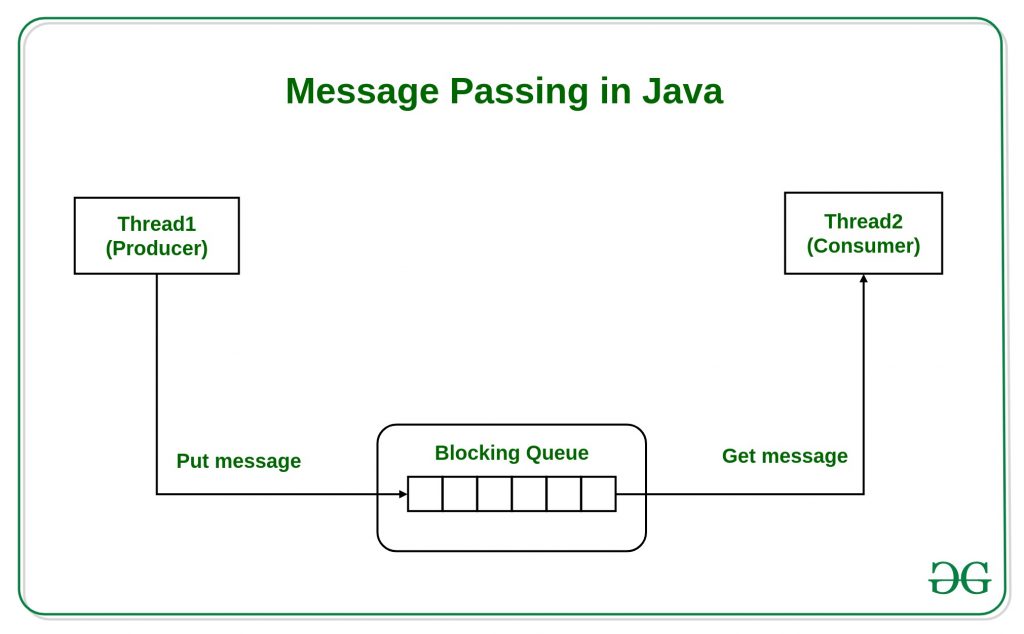Message Passing in Java
Last Updated :
01 Oct, 2019
What is message passing and why it is used?
Message Passing in terms of computers is communication between processes. It is a form of communication used in object-oriented programming as well as parallel programming. Message passing in Java is like sending an object i.e. message from one thread to another thread. It is used when threads do not have shared memory and are unable to share monitors or semaphores or any other shared variables to communicate. Suppose we consider an example of producer and consumer, likewise what producer will produce, the consumer will be able to consume that only. We mostly use Queue to implement communication between threads.

In the example explained below, we will be using vector(queue) to store the messages, 7 at a time and after that producer will wait for the consumer until the queue is empty.
In Producer there are two synchronized methods putMessage() which will call form run() method of Producer and add message in Vector whereas getMessage() extracts the message from the queue for the consumer.
Using message passing simplifies the producer-consumer problem as they don’t have to reference each other directly but only communicate via a queue.
Example:
import java.util.Vector;
class Producer extends Thread {
static final int MAX = 7;
private Vector messages = new Vector();
@Override
public void run()
{
try {
while (true) {
putMessage();
sleep(1000);
}
}
catch (InterruptedException e) {
}
}
private synchronized void putMessage()
throws InterruptedException
{
while (messages.size() == MAX)
wait();
messages.addElement(new java.util.Date().toString());
notify();
}
public synchronized String getMessage()
throws InterruptedException
{
notify();
while (messages.size() == 0)
wait();
String message = (String)messages.firstElement();
messages.removeElement(message);
return message;
}
}
class Consumer extends Thread {
Producer producer;
Consumer(Producer p)
{
producer = p;
}
@Override
public void run()
{
try {
while (true) {
String message = producer.getMessage();
System.out.println("Got message: " + message);
sleep(2000);
}
}
catch (InterruptedException e) {
}
}
public static void main(String args[])
{
Producer producer = new Producer();
producer.start();
new Consumer(producer).start();
}
}
|
Output:
Got message: Thu May 09 06:57:53 UTC 2019
Got message: Thu May 09 06:57:54 UTC 2019
Got message: Thu May 09 06:57:55 UTC 2019
Got message: Thu May 09 06:57:56 UTC 2019
Got message: Thu May 09 06:57:57 UTC 2019
Got message: Thu May 09 06:57:58 UTC 2019
Got message: Thu May 09 06:57:59 UTC 2019
Got message: Thu May 09 06:58:00 UTC 2019
Like Article
Suggest improvement
Share your thoughts in the comments
Please Login to comment...